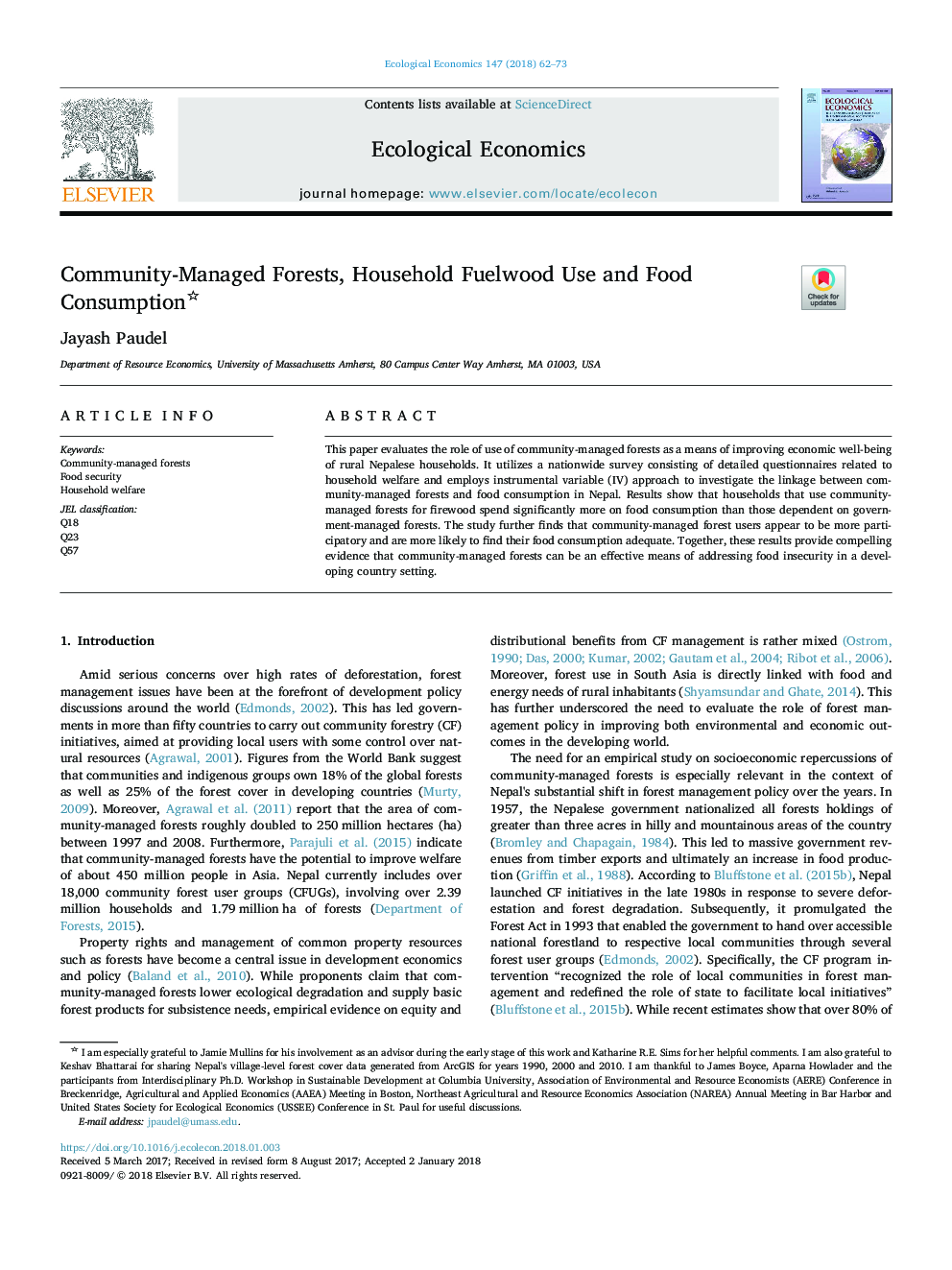| Article ID | Journal | Published Year | Pages | File Type |
|---|---|---|---|---|
| 7344290 | Ecological Economics | 2018 | 12 Pages |
Abstract
This paper evaluates the role of use of community-managed forests as a means of improving economic well-being of rural Nepalese households. It utilizes a nationwide survey consisting of detailed questionnaires related to household welfare and employs instrumental variable (IV) approach to investigate the linkage between community-managed forests and food consumption in Nepal. Results show that households that use community-managed forests for firewood spend significantly more on food consumption than those dependent on government-managed forests. The study further finds that community-managed forest users appear to be more participatory and are more likely to find their food consumption adequate. Together, these results provide compelling evidence that community-managed forests can be an effective means of addressing food insecurity in a developing country setting.
Related Topics
Life Sciences
Agricultural and Biological Sciences
Ecology, Evolution, Behavior and Systematics
Authors
Jayash Paudel,
